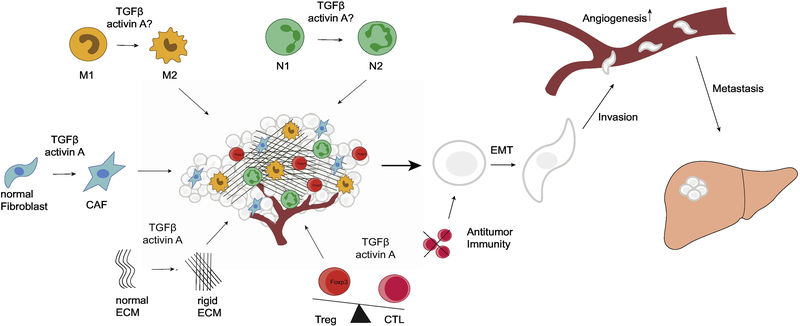Figure 1:
The metastasis-promoting effects on the tumor microenvironment by activin A and TGFβ. Whereas TGFβ has been shown to shift neutrophil and macrophage populations towards N2/M2, the effects of activin A on those leukocytes are not as clear. Both molecules can induce the CAF-phenotype in fibroblasts, and reciprocally participate in the desmoplastic process in tumors. Desmoplasia is potentiated by a rigid ECM and the abundance of CAFs. Activin A and TGFβ are efficient suppressors of antitumor immunity and are able to induce immunosuppressive regulatory T-cells. The effects of activin A and TGFβ on the tumor microenvironment lead to increased cancer cells migration through induction of EMT, as well as angiogenesis and cancer cell invasiveness to ultimately accelerate the metastatic process.
(N1 classically activated neutrophils, N2 pro-tumor neutrophils, M1 classically activated macrophages, M2 pro-tumor macrophages, CAF cancer-associated fibroblasts CTL cytotoxic T-cells, Treg regulatory T-cells, EMT epithelial-to-mesenchymal transition)

